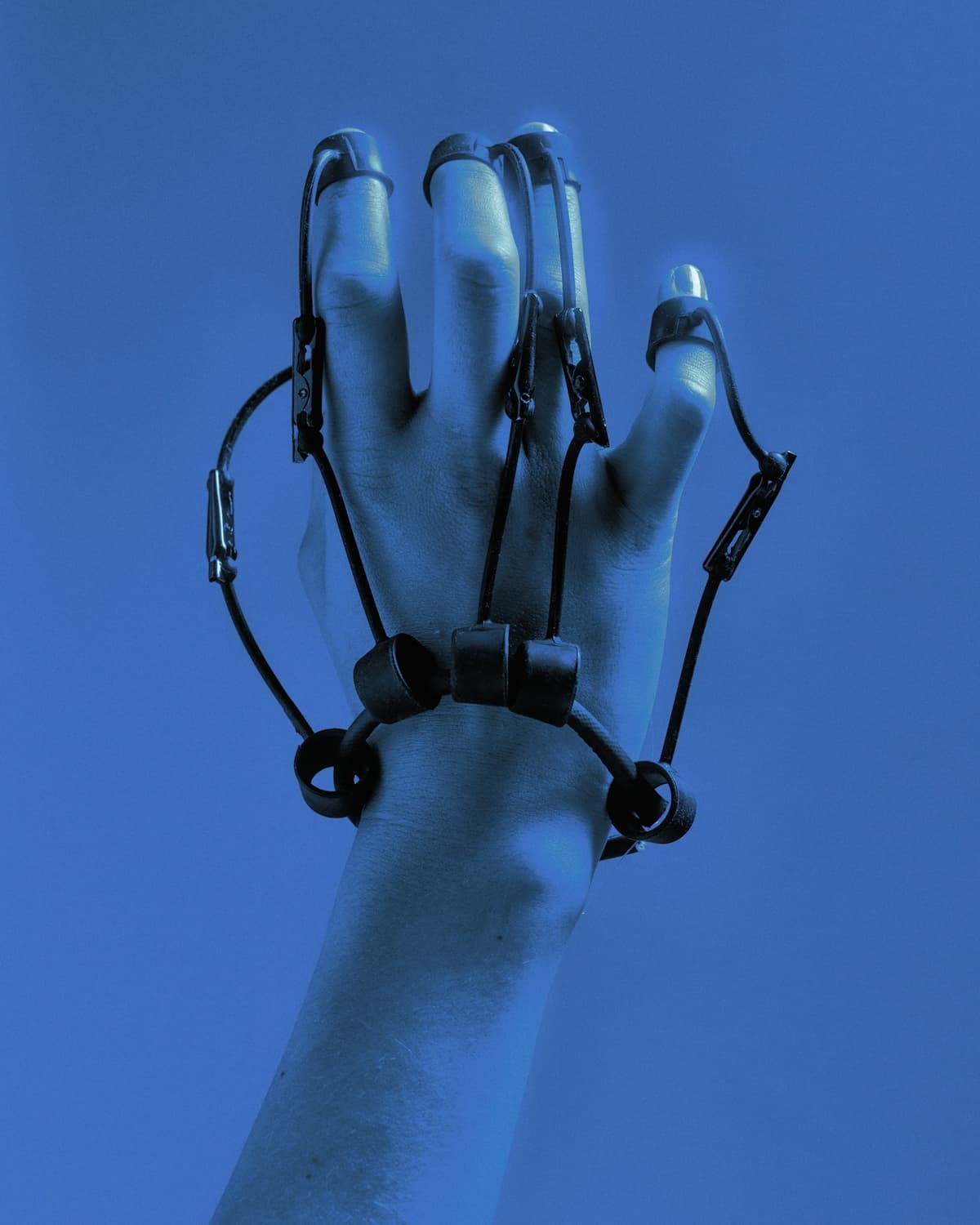How to Stop Using the Unique, Creative Words that Aren’t Unique or Creative
If you’ve ever applied for a job or worked as a recruiter, if you work in branding or marketing, or if you ever have to pitch an idea to someone else, you have probably used certain words that just aren’t selling it like you think they are. These words aren’t creative or unique – they’re […]

If you’ve ever applied for a job or worked as a recruiter, if you work in branding or marketing, or if you ever have to pitch an idea to someone else, you have probably used certain words that just aren’t selling it like you think they are.
These words aren’t creative or unique – they’re the same words everyone else is using to describe themselves, their projects, or their companies. When it comes to standing out in the flurry of emails we all receive every day, these words could be scuppering your chances of landing that deal or placing that coverage.
It’s especially an issue because the words include “creative” and “unique”. How many cover letters have you written or read that say their author is a “creative” person? How many companies have a “unique” strategy for performing their role? Are you “passionate” about your industry? Have you been improving your “teamwork skills”?
Oversaturating your copy with these words (and others) is going to reduce the extent to which your reader engages. They might even shut off completely. And it’s not going to help if you go on to say something worthwhile, or if you’ve said it already – it only takes one slip up for someone to write off the entire piece.
The Thesaurus is Your Friend
If you’re guilty of dipping into these “buzzwords”, there’s a really simple way to fix your problem: don’t use those words. In practical terms, that just means using a thesaurus (or the modern, quicker version, Googling “synonyms”) to replace your word with something a bit better.
In fact, this is excellent practice to follow even if you’re not using one of the more clichéd words or phrases. Words like “high profile” might become more striking if you replace them with alternatives like “pre-eminent”. “Pioneering” could be become the vastly more intriguing “experimental”.
While the word you have might be more than sufficient for your needs, you can usually discover replacement words that better suit your brand and align you with certain ideas and concepts. Granny’s Homemade Muffins might be “delicious” and “mouth-watering”, but how much more homely and welcoming do they sound if they’re “scrumptious” and “heavenly” instead?
Show, Don’t Tell
Sometimes, a thesaurus isn’t enough. Sometimes it’s not the words that are worn out, it’s the concepts. There are, after all, only so many ways you can say you’re good at “teamwork”.
In cases like these, the way to get your point across without losing your audience is to show, not tell. This is the basis of the majority of artistic ventures, from film, to books, to artwork. The point should be self-evident without you needing to point it out.
If you want to include proficiency in “teamwork” on a cover letter, for example, don’t say it – talk about the projects you helped coordinate, or the role you play in your team. If you’re talking about how your company excels at teamwork, write about the work process and how different positions contribute to a project. The same applies to any topic.
Creative is Not Your Friend
This does, of course, raise the question of what words are overused. I’ve included some examples of common offenders at the end of this article, but others might be less obvious. Some might be specific to your industry or your age group, for example – and while those ones won’t be a problem if you use them out of those contexts, the more you can differentiate yourself from the madding crowd, the stronger your copy will be.
There’s an easy methodology for identifying words that might switch your readers off. The first words that come to your mind are likely to be the wrong ones. And if you have to stop and think “but what’s another word for ‘creative’?” then “creative” is the word you want to avoid at all costs. Because if it’s the first word you’ve thought of, then the chances are that it’ll have been the first word that everyone else will have thought of first as well.
Unique isn’t Your Friend Either
You might be thinking “but it’s not about how I describe myself, it’s about what I’ve done. I’ve paraglided off Everest. I’ve swum down to the Titanic. I broke the world record for packets of crisps eaten in one sitting. I am unique!” But here are some words to live by, courtesy of Rory Sutherland, copywriter and former creative director at Ogilvy (and now co-founder and Vice Chairman of Ogilvychange):
“Nothing exists independent of context.”
What this means in terms of copy is that regardless of what it says, how it’s read is still vitally important. Most people would rather read a well-written passage on doing the dishes than a dull and generic article on exploring the Titanic. That is, it’s not enough to be unique, you also have to come across as unique.

In Other Words
While you should at this point have a rough idea of the words you need to skip over, how to skip over them, and why it’s important to skip over them, I thought I’d save you some time by suggesting some easy and interesting alternatives for the words that always seem to show up.
Unique
Unique is a remarkably unique word, which makes it tricky to replace. But not impossible – “distinct” will serve your purposes if you write around it, and “individual” and “original” can both help keep your writing… unique.
Creative
Calling yourself creative on a cover letter is always delightfully ironic as its very use proves that you’re not. But you could still be “experimental”, or “imaginative”, even “unconventional” or “unorthodox”. Bonus points for choosing words that have a hint of negativity to them like the latter two – it can really make your reader sit up and think. That’s not for every occasion, however – you might not want to call yourself “unorthodox” if you’re applying for a regimented finance position!
Passionate
The word “passion” actually comes from the Latin for “to suffer”, which is suggestive of the force it’s meant to represent. But in the modern world, everyone always seems to be passionate about what they do. You can put the fire back into your interests by saying things like “I have an obsession with”, “I’m galvanised by”, or “I’m driven by”. Those might sound like a bit too much – but that’s what the word “passion” was supposed to be.
Communication Skills
While this gets the point across, the professional world is saturated with people and companies who prize these abilities. In cases like these, the thesaurus isn’t what you want, as discussed already. You’re better off talking about what you do already that displays your communication skills – day-to-day management of office phones, for example, or working directly with customers.
Resonates
Yes, content might “resonate” with consumers, but at this stage, everyone has heard the word used about so many projects that if it were all true, we’d never stop resonating. Even tagging the word out for the common colloquialism “relatable” is a start. “Accessible” works too, and “sympathetic” might shake things up a little.
Disruptive
“Disruptive” follows the same issues as “creative” and “unique” in that everyone believes they are, and if everyone’s using the same description, then you’re the same as everyone else. And if you’re the same as everyone else, then you’re clearly not disrupting them all that much. Consider talking about the industry niche your company dominates or is tackling, or how your work has revitalised certain concepts, or changed the market.
Some Closing Words
It’s worth saying that not every word can be replaced, and not every word should be. It’s always worth taking a look to see if you can better word something to inspire brand recognition, regardless of the context, but there is a reason that these words come up time and again.
What matters most is the overall impression of the copy. If you can include the phrase “unique and creative” and the rest of what you’re saying is a veritable rollercoaster of emotions, then you’ve done your job the right way. For everything else, there’s the thesaurus.

 Search
Search PR
PR AI
AI Social
Social














